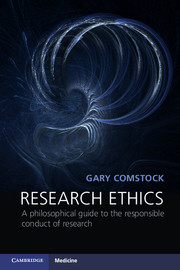Book contents
8 - Clarify statistics
Published online by Cambridge University Press: 05 February 2013
Summary
The image of the solitary biologist standing in a field counting butterflies and recording the numbers in a notebook still conjures up a picture of “real science” for some of us old timers. Research procedures are vastly different now. Typically, single individuals don’t produce data on their own – or record them only by hand; rather, interdisciplinary groups use computers and other electrical devices, amassing and recording their findings on software spreadsheets and in databases. Consequently the production, management, mining, and stewardship of data are processes rife with social, ethical, political, and legal implications. The moral issues associated with the interpretation of statistics are complex.
To get the ball rolling, consider just one introductory example. Journals generally seem unwilling to publish negative findings. If your study does not produce positive results, should you explore hypotheses about relationships in the data that were not part of your original design? If you switch mid-stream to a new statistical method in order to try to find some positive results, you may be mining, milking, or dredging data. In this way you may be able to suggest some interesting relationships and spur additional research, but your work may not be useful in proving any hypothesis. There are limits to the number of statistical methods and tests that may legitimately be used to explore a data set. In general, you should stick to the methods identified in your original plan for data analysis. If after the data are collected you adopt novel methods you may be guilty of making post hoc inferences. Such inferences themselves are not illegitimate but you must adopt appropriate methods to explore them. And the dangers are significant because it’s so easy to find misleading patterns. Caution is essential when looking for correlations the set was not constructed to reveal.
- Type
- Chapter
- Information
- Research EthicsA Philosophical Guide to the Responsible Conduct of Research, pp. 144 - 154Publisher: Cambridge University PressPrint publication year: 2013



